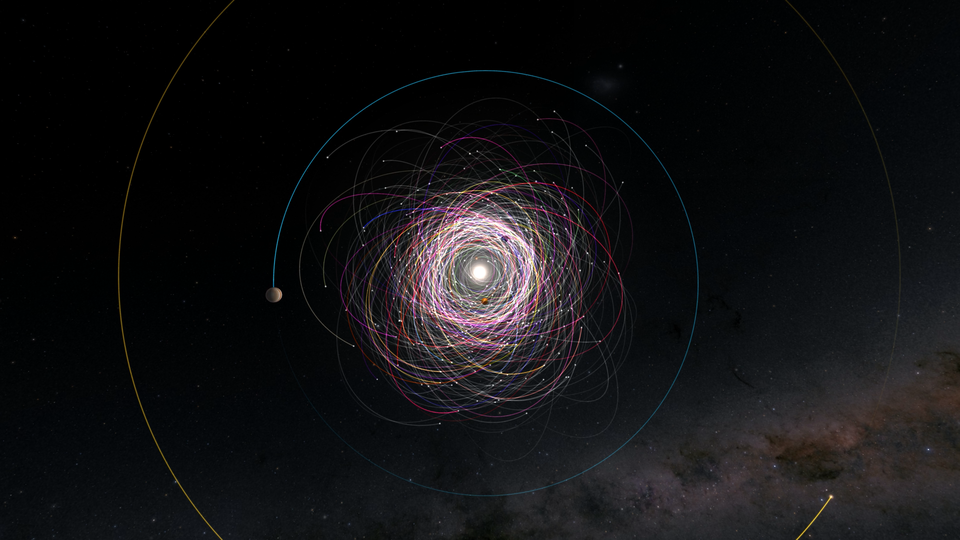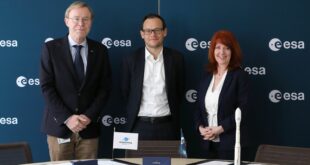
London, 12 October 2023 – ESA announced the latest focused product release from the Gaia mission. Gaia was launched in 2013 and is mapping our galaxy and beyond in great detail, completing the most accurate stellar census.
Gaia’s third data release (DR3) contained data on over 1.8 billion stars. The data is being used to build on gaps on knowledge in areas densely packed with stars that previously had not been fully explored. An example of this is globular clusters, where their bright cores can overwhelm telescopes attempting to get a clear view. Gaia selected Omega Centauri, the largest globular cluster that can be seen from Earth, and enabled a special mode to map a wider patch of sky. Gaia has discovered over half a million new stars from this cluster. This new mapping will allow further study of the cluster’s structure and how stars are distributed. Gaia is currently exploring eight more regions in this way which will be included in the next Gaia Data Release 4.
156,823 asteroids as part of Gaia DR3 have been studied, with their positions pinpointed over nearly double the previous timespan, making most of their orbits 20 times more precise. Another paper has mapped the disc of the Milky Way by tracing weak signals seen in starlight, faint imprints of the gay and dust that floats between stars. The Gaia team stacked six million spectra to study these signals, forming a large dataset of weak features. Further study of these signals will help understanding of the complex and intertwined physical and chemical processes active throughout our galaxy and the material lying between stars.
Gaia’s DRS came on the 13th of June 2022 containing new and improved details for almost 2 billion stars in the Milky Way. The next Data Release, DR4, is expected not before the end of 2025. It will build upon Gaia DR3 and aims to refine our knowledge of star’s colours, positions, movements, resolve variable and multiple star systems, identify and characterise quasars and galaxies, and list exoplanet candidates.





